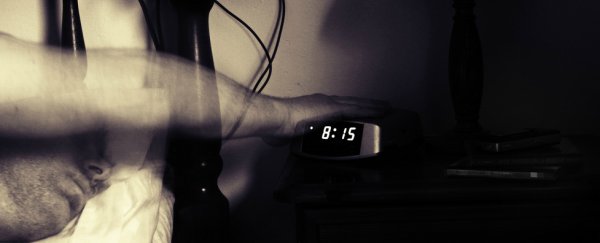We all know we should be getting more sleep. Studies show that we need around seven to nine hours a night in order to function properly and stay healthy.
But for most of us that's pretty unachievable when we need to be at our desks by 9am every day. In the US, 30 percent of employed adults get less than six hours a night, and a survey by Bupa in 2007 showed that 51 percent of Australians say they're not properly rested.
And that's not great for anyone - not only has a lack of sleep been linked to poor cardiovascular health, obesity and impaired performance, it also makes workers less productive. Research has shown that, on average, fatigue costs employers around US$2000 per employee each year.
But a new study suggests that by simply delaying the time you start work or school - or making start time flexible - workers can get significantly more shut eye.
Scientists from the University of Pennsylvania Perelman School of Medicine in the US looked at the sleep and work habits of more than 124,517 Americans over the age of 15 between 2003 and 2011, and showed that people are most likely to sacrifice sleep for paid work.
"The evidence that time spent working was the most prominent sleep thief was overwhelming," said lead researcher Mathias Basner, an assistant professor of sleep and chronobiology, in a press release.
But they also found a potential solution - with every hour that work started later in the morning, the sleep time of participants increased by around 20 minutes.
Workers who started before or at 6am only slept an average of six hours, but those who started between 9 and 10am clocked around seven and a half hours of sleep a night.
And those who were self-employed or who had flexible work times also got a lot more sleep than private sector employees.
Obviously that's not an option for everyone, but the research also shows that simply moving closer to the office can help - those who slept less than six hours a night travelled for longer than their peers, with peak travel times at 7am and 5pm. And people who worked multiple jobs were the shortest sleepers of all. The results have been published in the journal SLEEP.
"Potential intervention strategies to decrease the prevalence of chronic sleep loss in the population include greater flexibility in morning work and class start times, reducing the prevalence of multiple jobs, and shortening morning and evening commute times," said Basner in the release.
Of course, if there were easy solutions for all of those problems, we'd be doing them, and we don't all have the luxury of choosing when we start work or class.
But it helps to know that science is on your side if you decide to tell your boss you want more flexible working hours. After all, who doesn't want more alert and awake workers?
Want to know more about why we need sleep so much? This episode of RiAus's A Week in Science has you covered:
Sources: Slate, American Academy of Sleep Medicine
